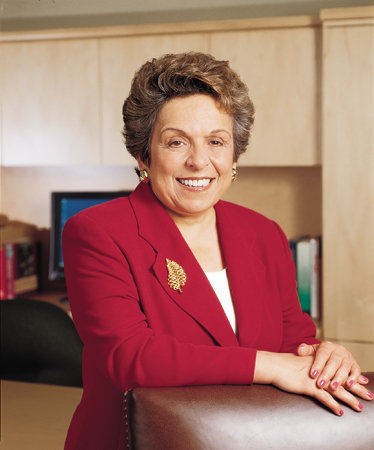
It won’t be easy, but we can transform the nursing profession
By Donna Shalala
When President Kennedy established the Peace Corps 50 years ago this March, he called upon Americans skilled in teaching, agriculture, and health to lend their talents overseas. It will not be easy, he warned, but it will be rich and satisfying.
Today, the same words that, against my family’s wishes, prompted me to head to a tiny Iranian village after earning a history degree in 1962 could be applied to the challenges we face in transforming the nursing profession.
It will not be easy, but it will be rich and satisfying.
As the largest segment of the healthcare workforce, nurses hold the key to creating the kind of patient-centered, evidence-based healthcare system we envision for all our citizens. But that system will remain more dream than reality until nurses assume their proper leadership and partnership roles outlined in the Institute of Medicine report, The Future of Nursing: Leading Change, Advancing Health.
Serving as a blueprint for improving our healthcare system, the report contains five key messages the profession should follow as guideposts.
First, nurses, nursing education programs, and professional associations should prepare the nursing workforce to assume leadership positions across all levels. At the same time, nurses need to take steps to build their leadership skills and knowledge, and they must seek opportunities to use those skills in partnerships on healthcare teams and in efforts that improve the delivery of care. We need more nurses influencing major healthcare decisions.
Second, we need to improve the way nurses are educated to meet the complex needs of patient care in the 21st century, which will include enabling and encouraging nurses to achieve higher levels of education and training. This will require an improved education system that promotes lifelong learning and addresses shortages of nursing faculty and researchers. Healthcare organizations and nursing schools should implement residency programs to facilitate the transition from classroom to bedside. The IOM report calls for more nurses to pursue higher degrees, increasing the number with BSNs to 80 percent and doubling the number with doctorates by 2020.
Third, nurses should practice to the full extent of their education and training. ItÕs about empowering all nurses, doctors, and other health professionals to practice to the best of their abilitiesÑto do what they were educated and trained to do.
Fourth, the healthcare system needs better information about its existing workforce to properly shape its future workforce. To accomplish that, the report recommends building an improved infrastructure to collect and analyze healthcare workforce data.
And last, but in my opinion most important, nurses should be full partners with physicians and other healthcare professionals in redesigning healthcare in the U.S. Empowering nurses and other health professionals will provide all patients with the care they need in the communities where they live.
It will not be easy, but I assure you, the journey will be as rich and satisfying for the nation’s three million-plus nurses as it’s been for the 200,000-and-counting Peace Corps volunteers who heeded President Kennedy’s call.